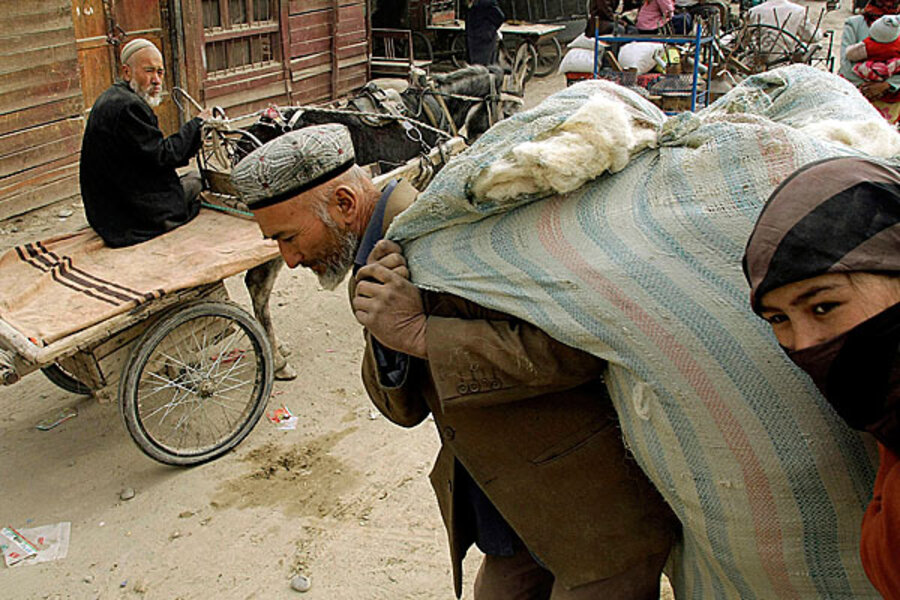Airline passengers and crew foil hijackers in China
Loading...
| Beijing
Chinese airline passengers helped foil an attempt to hijack a plane in the western region of Xinjiang on Friday, state media said, the latest incident of instability in a part of China where the government says it is facing violent separatists.
Passengers and air crew subdued six people who attempted to hijack a flight 10 minutes after it took off from the remote desert city of Hotan, a heavily ethnic Uighur area that has been hit by recent bouts of violence, Xinhua news agency said.
The Tianjin Airlines plane was flying to the regional capital, Urumqi, when the attackers were overpowered, Xinhua said, citing police.
The aircraft returned to Hotan where six people were taken into custody, it said.
RECOMMENDED: How well do you know China? Take the quiz
The news agency did not identify the hijackers or give any information about their background.
Xinjiang is home to the mainly Muslim Uighur people who speak a Turkic language. Many of them chafe at Chinese government controls on their culture and religion.
Two guards on board the plane were seriously injured in the struggle with the hijackers, while the senior flight attendant and seven passengers were slightly injured, Xinhua added.
Pictures posted on China's Twitter-like microblogging site Sina Weibo showed grimacing passengers holding down at least one of the suspects and what looked like blood on one of the seats.
In another picture, police could be seen on the tarmac, apparently bundling off one of the hijackers. Reuters was not able to independently verify the authenticity of the pictures.
Calls to Xinjiang's regional government and police offices went unanswered.
ATTACKS
In March 2008, Chinese officials said they had foiled a plan by an ethnic Uighur woman to bring down a flight from Xinjiang, where airport security screening is supposed to be very strict.
The government, wary of instability and the threat to the Communist Party's grip on power, often blames what it calls violent separatist groups and religious extremists in Xinjiang for attacks on police and other government targets.
In September, courts in Xinjiang sentenced four people to death for violence in two cities last year in which 32 people were killed.
The government blamed the incidents in Kashgar and Hotan - both in the majority Uighur southern part of Xinjiang - on Muslim hardliners who want to establish an independent state called East Turkestan.
In January, authorities said that seven people killed by police in Xinjiang had been trying to leave the country to wage "holy war".
China is concerned about Uighur activists linking up with Islamist militants over the border in Pakistan.
Activists in exile and human rights groups say China overstates the threat posed by militants in energy-rich Xinjiang, which sits astride south and central Asia. (Additional reporting by Sabrina Mao, Sally Huang and Ben Blanchard; Editing by Robert Birsel)







